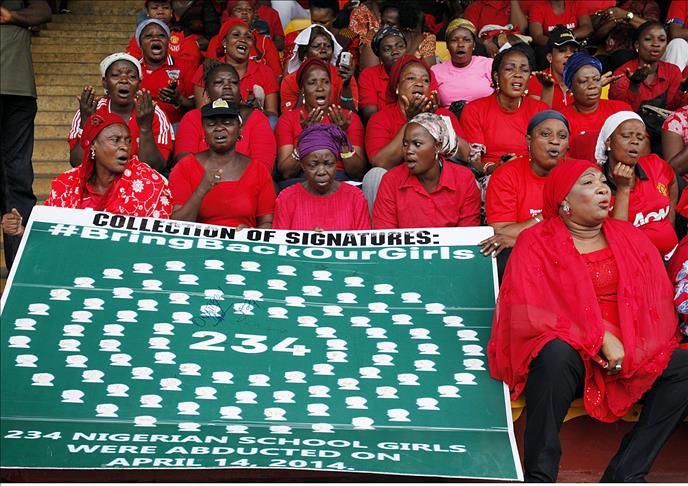
Nigerian President Goodluck Jonathan is currently meeting in capital Abuja with some of the parents of schoolgirls kidnapped by Boko Haram militants in the country's northeastern region, a full 99 days after the mass abduction.
The meeting is also being attended by 51 of the 57 girls who managed to escape from their abductors and leaders of the Chibok community, the scene of the April 14 incident that has since garnered international attention.
It is not clear why only 51 of the escaped girls are attending the meeting, which was first announced by Pakistani teen campaigner Malala Yousafzai during her three-day visit to Nigeria last week when she met with Jonathan.
Also attending the meeting, which was originally scheduled for last week, are top government officials, security chiefs and parliamentary leaders, including Senate President David Mark and governors of the insurgency-gripped Borno – where the April abductions took place – and Bauchi states.
Newsmen have been barred from attending the meeting, which is being held at the presidential banquet hall, due to what a presidential spokesman described as "security reasons."
On April 14, Boko Haram militants abducted 276 schoolgirls in Borno State's town of Chibok, according to official accounts.
Boko Haram kingpin Abubakar Shekau later claimed responsibility for the abductions, offering to trade the kidnapped girls in return for some of his fighters held by Nigerian authorities.
Nigerian Secret Police Chief Ita Ekpenyong told reporters on Monday that the authorities knew the abducted girls' whereabouts and were merely awaiting "the appropriate time" to secure their release.
Boko Haram, which means "Western education is forbidden" in Nigeria's local Hausa language, first emerged in the early 2000s preaching against government misrule and corruption.
The group later became violent, however, after the death of its leader in 2009 while in police custody.
In the five years since, the shadowy sect has been blamed for numerous attacks – on places of worship and government institutions – and thousands of deaths.
By Rafiu Ajakaye
englishnews@aa.com.tr


